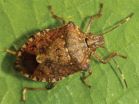(Press-News.org) Scientists have found that commercial samples of chocolate purchased in Brazil contain varying levels of lead and cadmium, which can cause health problems, and that those levels are linked to how much cocoa a product contains. They reported their findings, which could have health implications — particularly for children — in ACS' Journal of Agricultural and Food Chemistry.
Solange Cadore and colleagues note that chocolate has many potential health benefits due to the high levels of flavonoids and antioxidants in its star ingredient, cocoa. But they also explain that other research has suggested that unwanted components can make their way into the delectable treat. Past studies have shown that crops can take up lead and cadmium — two naturally occurring metals. Lead can cause abdominal pain, headaches and anemia in adults.
In children, it can cause behavioral changes and language delay, among other problems. Cadmium can cause damage to several organs. It also has estrogen-like effects and disrupts some hormones. Concerned that chocolate could contain lead and cadmium, Cadore's team set out to analyze commercial samples for the metals.
The researchers tested 30 milk, dark and white chocolate products bought in Brazil. Most were Brazilian brands, some of which are also sold in the U.S. They found that dark chocolates had the highest amounts of lead and cadmium, but all levels fell below maximum consumption limits from Brazil, the European Union (E.U.) and the World Health Organization. The U.S. Food and Drug Administration, however, recommends that the level of lead in candy should not exceed 100 nanograms per gram (ng/g) of candy — two samples topped this threshold by about 30 to 40 ng/g.
With respect to cadmium, the researchers calculated that if a child weighing 33 pounds eats about a third of an ounce of chocolate a day (less than a quarter of a regular chocolate bar), that child would consume a maximum of 20 percent of the E.U.-suggested tolerable weekly intake of the metal. The researchers point out that only a fraction of lead or cadmium would absorb into a person's bloodstream, but the levels they found in dark chocolate were still concerning, they concluded.
INFORMATION:
The authors acknowledge funding from the Conselho Nacional de Desenvolviemento Científico e Tecnológico, the Fundação de Amparo à Pesquisa do Estado de São Paulo and the Instituto Nacional de Ciências e Tecnologias Analíticas Avançadas.
The American Chemical Society is a nonprofit organization chartered by the U.S. Congress. With more than 161,000 members, ACS is the world's largest scientific society and a global leader in providing access to chemistry-related research through its multiple databases, peer-reviewed journals and scientific conferences. Its main offices are in Washington, D.C., and Columbus, Ohio.
To automatically receive news releases from the American Chemical Society, contact newsroom@acs.org.
Follow us: Twitter Facebook
Lead and cadmium found in some chocolate bought in Brazil
2014-09-03
ELSE PRESS RELEASES FROM THIS DATE:
Research finds crowdsourcing is vulnerable to malicious behavior
2014-09-03
New research has found that malicious behaviour is the norm in crowdsourcing competitions — even when it is in everyone's interest to cooperate.
Crowdsourcing provides the ability to accomplish information-gathering tasks that require the involvement of a large number of people, often across wide-spread geographies, expertise, or interests.
However, researchers from the University of Southampton and the National Information and Communications Technology Australia (NICTA) found that a significant feature of crowdsourcing — its openness of entry — makes it vulnerable ...
Enjoying the possibility of defeat
2014-09-03
Winning isn't everything, and in fact can even be a bit boring. Some people actually enjoy a game of tennis or poker more if their mettle is tested by a strong opponent – regardless of the outcome. It's the suspense and uncertainty of a close game that often brings them back for more, says a research team led by Sami Abuhamdeh of Istanbul Şehir University, in Springer's journal Motivation and Emotion.
Abuhamdeh's team tested the experiences of a group of 72 undergraduate university students who played four rounds of the Speed Slice game on Nintendo Wii. The objective ...
Study finds 'family meal' ideal is stressful, impossible for many families
2014-09-03
Magazines, television and other popular media increasingly urge families to return to the kitchen, stressing the importance of home-cooked meals and family dinners to physical health and family well-being. But new research findings from North Carolina State University show that home cooking and family meals place significant stresses on many families – and are simply impossible for others.
"We wanted to understand the relationship between this ideal that is presented in popular culture and the realities that people live with when it comes to feeding their children," says ...
So... do you know what is in your water?
2014-09-03
Would you like your glass of water with a little iron it? Or do you prefer a copper taste? Possibly manganese? Did you realize that there are more than two dozen flavors to water, not all of which are as yummy as say, rocky road ice cream?
For several decades Andrea Dietrich, who trains utility staff and managers around the U.S. and across the globe on how to use sensory analysis to detect changes in water quality, has worked in the area of assessing taste, odor, and visual perception of chemical elements in water. Dietrich, a professor of civil and environmental engineering ...
Study finds wide gap in compensation from '07 South Korean oil spill
2014-09-03
Although nearly eight years have passed since a major oil spill in South Korea, compensation and recovery efforts appear to be far from satisfactory, and the affected communities continue to suffer the effects of the disaster.
UT Dallas' Dr. Dohyeong Kim, second-year doctoral student Soojin Min and two Korean scholars have found a considerable gap between the economic loss claimed by residents and the compensation they received after the Hebei Spirit oil spill. Only 11 percent of the claims were approved for compensation.
"I was surprised," said Kim, the lead author ...
For kids with both asthma and obesity, which came first?
2014-09-03
ARLINGTON HEIGHTS, Ill. (September 3, 2014) – For years, doctors have known that there is a link between childhood obesity and asthma, but have found it difficult to determine which condition tends to come first, or whether one causes the other.
An article published in the September issue of Annals of Allergy, Asthma and Immunology, the scientific publication of the American College of Allergy, Asthma and Immunology (ACAAI), suggests it is more probable that childhood obesity contributes to asthma, although the connection is complex and has many factors.
"The relationship ...
You may have to watch what your fruits and veggies eat
2014-09-03
ARLINGTON HEIGHTS, Ill. (September 3, 2014) – People with food allergies always have to watch what they eat. Now, they may have to watch what their fruits and vegetables eat, as it seems it's possible to have an allergic reaction to antibiotic residues in food.
An article published in the September issue of Annals of Allergy, Asthma and Immunology, the scientific publication of the American College of Allergy, Asthma and Immunology (ACAAI), examines the case of a 10 year-old girl who had an anaphylactic (severely allergic) reaction after eating blueberry pie. Although ...
Brown marmorated stink bug biology and management options described in open-access article
2014-09-03
The brown marmorated stink bug (Halyomorpha halys) is an invasive, herbivorous insect species that was accidentally introduced to the United States from Asia. First discovered in Allentown, Pennsylvania in 1996, it has since been found in at least 40 states in the U.S. as well as Canada, Switzerland, France, Germany, Italy, and Lichtenstein.
In North America, it has become a major agricultural pest across a wide range of commodities. The insect is capable of eating more than 100 different plant species, and in 2010 it caused $37 million worth of damage to apples alone.
Now ...
Cosmic forecast: Dark clouds will give way to sunshine
2014-09-03
Lupus 4 is located about 400 light-years away from Earth, straddling the constellations of Lupus (The Wolf) and Norma (The Carpenter's Square). The cloud is one of several affiliated dark clouds found in a loose star cluster called the Scorpius–Centaurus OB association. An OB association is a relatively young, yet widely dispersed grouping of stars [1]. The stars likely had a common origin in a gigantic cloud of material.
Because the association, and its Lupus clouds, form the closest such grouping to the Sun, they are a prime target for studying how stars grow up together ...
Scientists discover how to 'switch off' autoimmune diseases
2014-09-03
Scientists have made an important breakthrough in the fight against debilitating autoimmune diseases such as multiple sclerosis by revealing how to stop cells attacking healthy body tissue.
Rather than the body's immune system destroying its own tissue by mistake, researchers at the University of Bristol have discovered how cells convert from being aggressive to actually protecting against disease.
The study, funded by the Wellcome Trust, is published today [03 September] in Nature Communications.
It's hoped this latest insight will lead to the widespread use of antigen-specific ...





